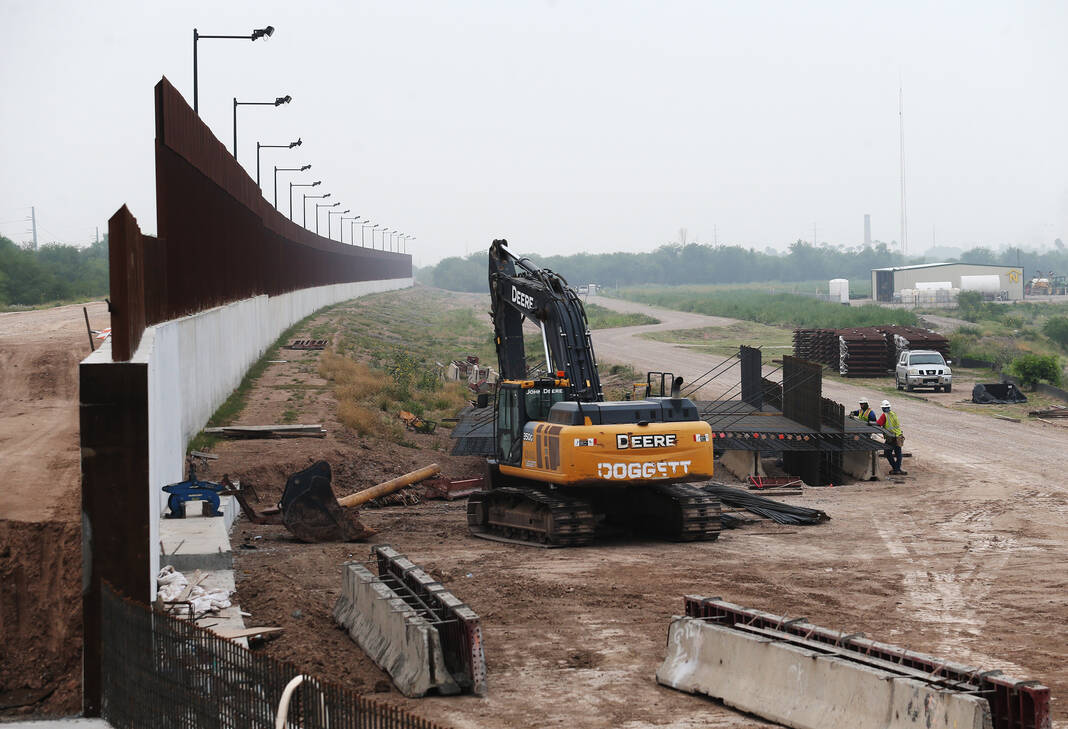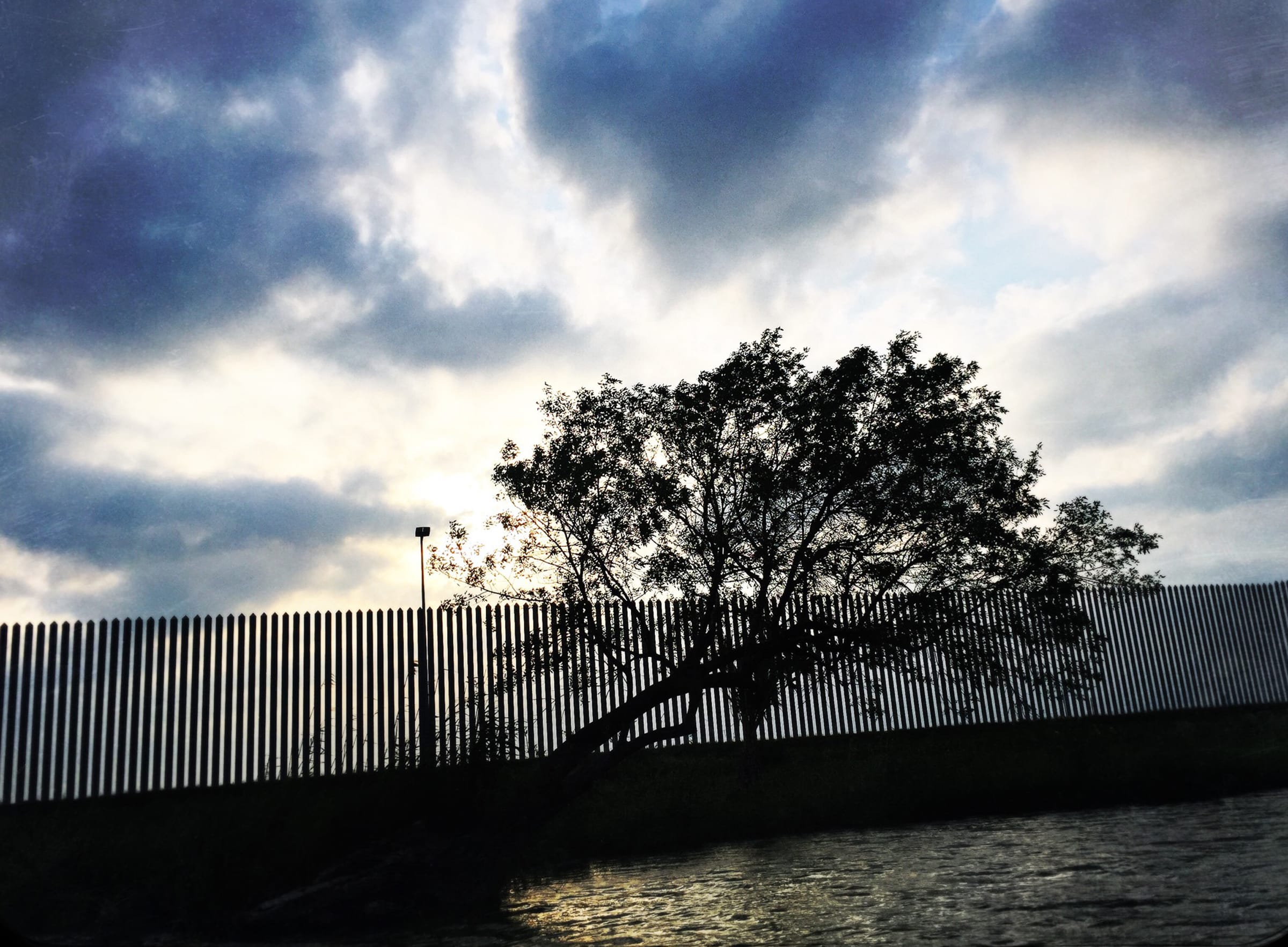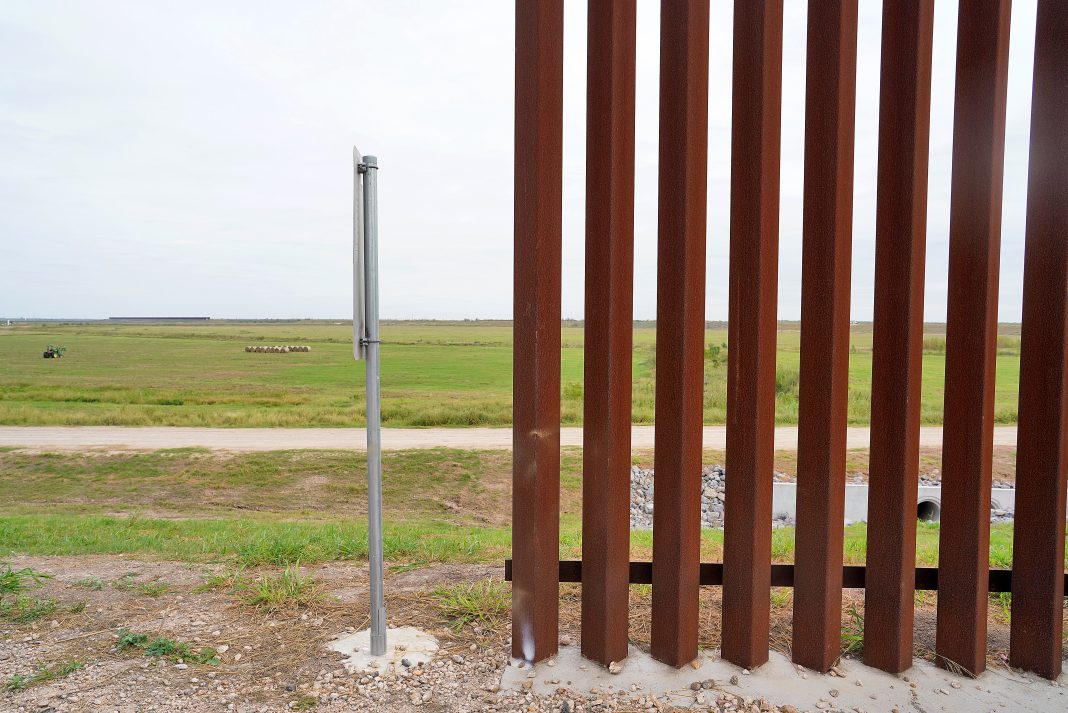Despite the dramatic increase in support of building a border wall along the U.S.-Mexico border in the RGV, people continue to believe that the border wall will not reduce immigration.
A study conducted by the University of Texas Rio Grande Valley has found that support for border wall construction has grown as support for Republicans here has also strengthened.
However, overall opposition to border wall construction is still stronger than support for its construction with 65% of respondents being opposed.
The survey, which was conducted by the UTRGV Center for Survey Research & Policy Analysis, polled Valley residents in 2022. The center conducted the same poll in 2018 and found that since then, support for the wall has nearly doubled.
When the survey was taken in 2018, former President Donald Trump was at the height of his term and while his hardline immigration policies — including the promise of more border wall construction — were in full swing.
Two years later in 2020, U.S. Rep. Monica De La Cruz, a Republican, nearly unseated Democratic rival Rep. Vicente Gonzalez in her first run for Congress. The near-victory foreshadowed her 2022 win that sent De La Cruz to Washington D.C.
Trump endorsed De La Cruz in 2022. However, in this election, Texas redistricting by the Republican-controlled Legislature sent Gonzalez into neighboring District 34.
The newly drawn District 15 became more favorable for Republicans because redistricting strengthened as a conservative-leaning district with the addition of more rural counties to the north of the border, paving the way for De La Cruz to defeat progressive Democrat Michelle Vallejo.
While the study doesn’t mention these developments in Valley politics, it does note more conservative sentiment has grown here in recent years, according to Dr. Mi-son Kim, an associate professor of political science at UTRGV.
“The border issue has been nationalized, leading residents in the RGV to respond to the issue similarly as people outside the RGV,” Kim wrote in the study. “And this trend primarily means more conservative sentiment has grown among our residents in the recent years.”

In fact, Republican support for building a border wall has increased 30% since 2018. That increase is found across party lines and gender.
“About 1 in 2 RGV residents disagree that the border wall would reduce the number of immigrants,” the study stated.
One survey question included: “Are you in favor or do you oppose building a wall along the border to Mexico?”
Two in three Valley residents, or about 65.2%, expressed opposition. When the same question was asked in 2018, about 76% expressed opposition.
“When we look only at participants who answered the question, the opposition was about 84 percent. Thus, we can say the opposition to border wall construction has decreased by about 30 percent since 2018,” the study stated.
Nationally, opposition to construction remains high, according to the survey, which cites a 2017 Pew Research Institute study that said 63% of respondents opposed construction. A 2019 survey by the Pew Research Institute found 58% opposed construction expansion.
“Over the last four years, the RGV opinion has seemed to follow the national trend,” the study stated.
Meanwhile, the percentage of respondents in favor of building more wall has doubled.
“In 2018, the percentage was only about 16.3 percent, while it increased to 34.7 percent in 2022,” the study noted.
In 2018, about 49% of Republicans were in favor of building more border wall while now 75% supported it in 2022. That increased support includes some Democrats.
“In 2018, only 9.2 percent of Democrats were in favor of building the wall along the U.S.-Mexico border. By 2022, that number had doubled to 18.7%,” the study stated.

Dr. Natasha Altema McNeely, an associate professor of political science at UTRGV, said this may be a result of national and local news coverage coupled with Gov. Greg Abbott’s Operation Lone Star initiative.
“The increase in support for the border wall among Republican and Democratic residents in the RGV may be a result of national and local news coverage about migrants crossing the border and Governor Abbott’s efforts to increase border security in response,” McNeely wrote.
The survey, however, found that Valley residents disagree that the border wall would reduce the number of immigrants.
“Despite the dramatic increase in support of building a border wall along the U.S.-Mexico border in the RGV, people continue to believe that the border wall will not reduce immigration,” the study stated.
In 2018, about 51.6% of Valley residents believed the wall would have no impact on immigration.
“The new poll showed the same pattern,” the study noted.
About 45.5% of Valley residents believe the wall would have no impact on immigration reduction.
Dr. Dongkyu Kim, executive chair of the Center for Survey Research & Policy Analysis, said the pattern shows the importance of the border to Valley residents despite the recent politicization of the border wall along partisan lines.





